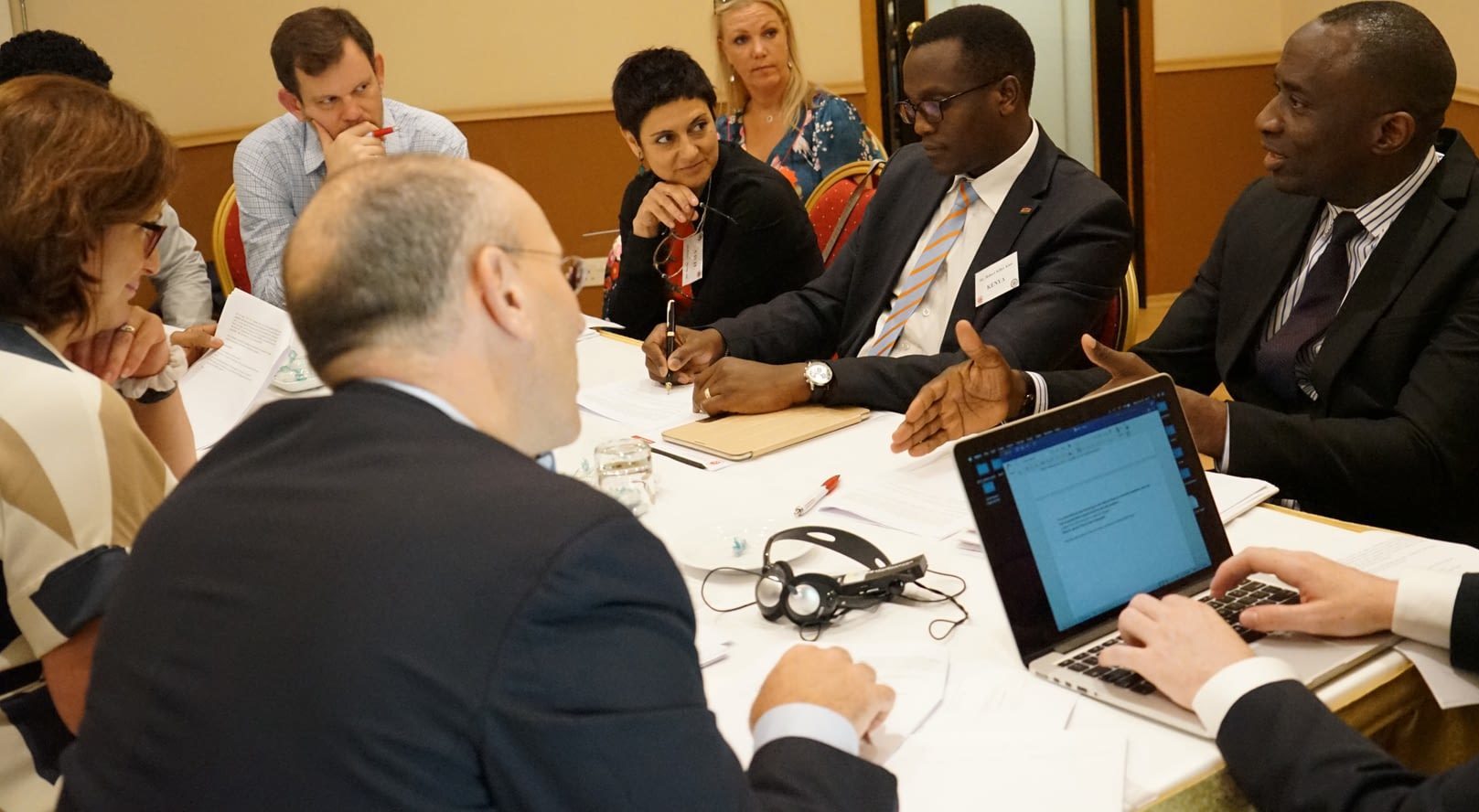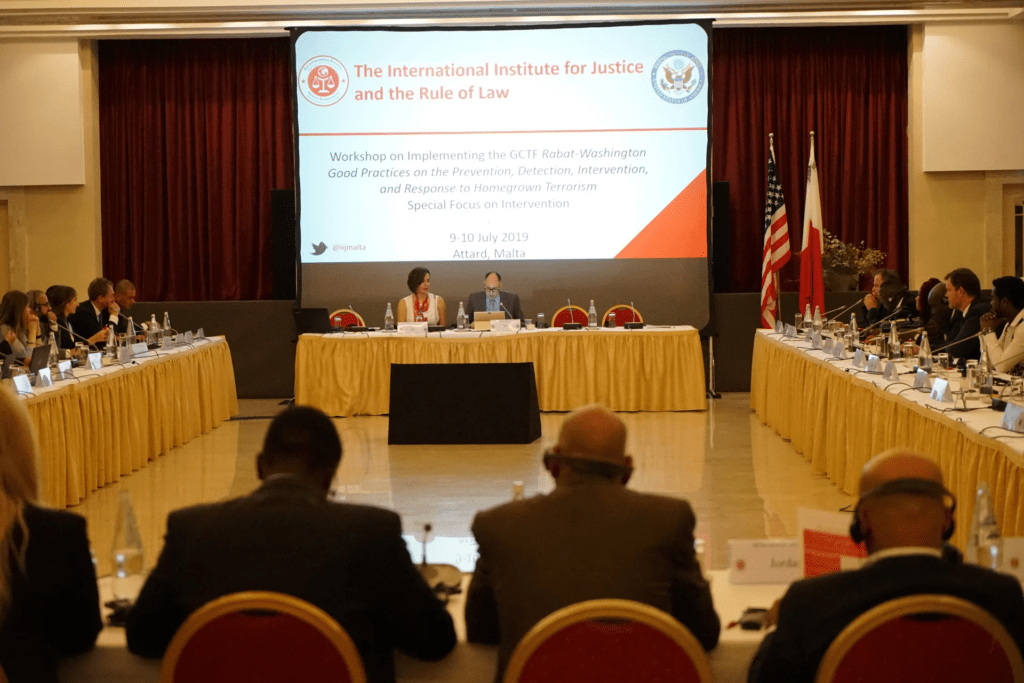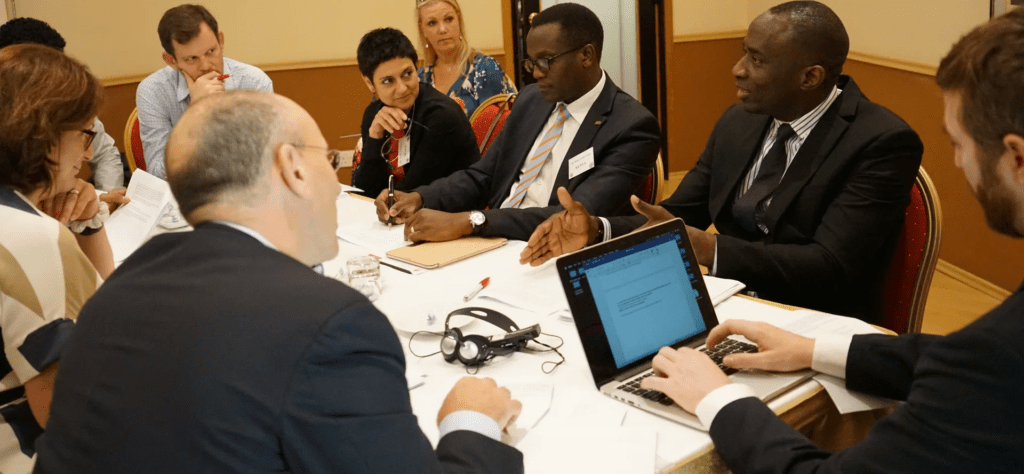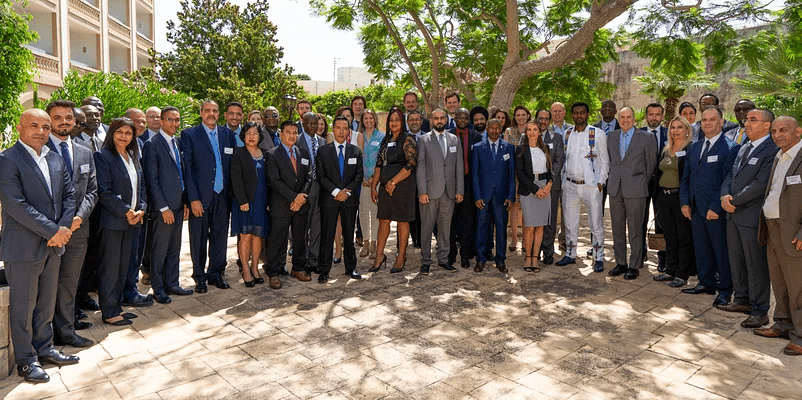
In July 2019, the IIJ welcomed 41 criminal justice practitioners, including 10 prosecutors, 7 judges, 5 law enforcement officers, 16 policymakers, and senior advisors, analysts and psychologists to the Workshop on Implementing the GCTF Rabat-Washington Good Practices on the Prevention, Detection, Intervention, and Response to Homegrown Terrorism, with a Focus on Intervention in Attard, Malta. The workshop, convened under the auspices of the IIJ Addressing Homegrown Terrorism Initiative, with support from the U.S. Department of State's Bureau of Counterterrorism, drew together practitioners from 22 countries across Africa, Asia, Europe, the Middle East, and North America, as well as 7 international organisations.
The workshop focused on implementing the GCTF's Rabat-Washington Good Practices on Prevention, Detection, Intervention, and Response to Homegrown Terrorism, with a specific focus on the intervention good practices. The Rabat–Washington Good Practices, endorsed by GCTF Ministers in September 2018, offers guidance to criminal justice practitioners and all stakeholders in the areas of counterterrorism and preventing/ countering violent extremism (P/CVE) working to address the phenomenon of homegrown terrorism. The workshop also cross-implemented good practices and recommendations in complementary GCTF documents, including: the Addendum to the Rome Memorandum on Good Practices for Rehabilitation and Reintegration of Violent Extremist Offenders, the Good Practices on Women and Countering Violent Extremism, and the Good Practices on Community Engagement and Community-Oriented Policing as Tools to Counter Violent Extremism.
Mr. Thomas Wuchte, IIJ Executive Secretary, opened the workshop by highlighting the importance of international collaboration in addressing the growing threat of homegrown terrorism. During the two-day workshop, practitioners examined successful intervention models and techniques, discussed legal frameworks for intervention programs, appropriate alternative measures, intervention tools during rehabilitation and re-integration phases, and a holistic community engagement approach to P/CVE as a method of early intervention with high- and at-risk individuals. Participants were also introduced to a draft version of the GCTF's Glion Memorandum on the Use of Rule of Law-Based Administrative Measures in a Counterterrorism Context, developed under an initiative of the GCTF Criminal Justice and Rule of Law Working Group.
Practitioners spent the final two sessions of the workshop discussing hypothetical case studies in small groups, which enabled participants to discuss the good practices in greater detail and apply the different tools and techniques to the fact pattern. As a result of these discussions, practitioners developed an analysis of the two cases and recommendations for good practices for interventions, which were shared during the final plenary session.
Practitioners reported that the workshop successfully enhanced their knowledge of the Rabat-Washington Good Practices and other related GCTF good practices, and – in turn – their capacity to implement and operationalise the good practices in their work. Several practitioners said they would be returning to their home countries to coordinate with relevant authorities to implement specific recommendations at the local and national levels. The IIJ Addressing Homegrown Terrorism Initiative will continue to promote implementation and operationalisation of the Rabat-Washington Good Practices through further thematic and regional workshops in 2020.
For more information on this workshop or the IIJ Addressing Homegrown Terrorism Initiative, please contact Programme Manager Miriam Shafik.



